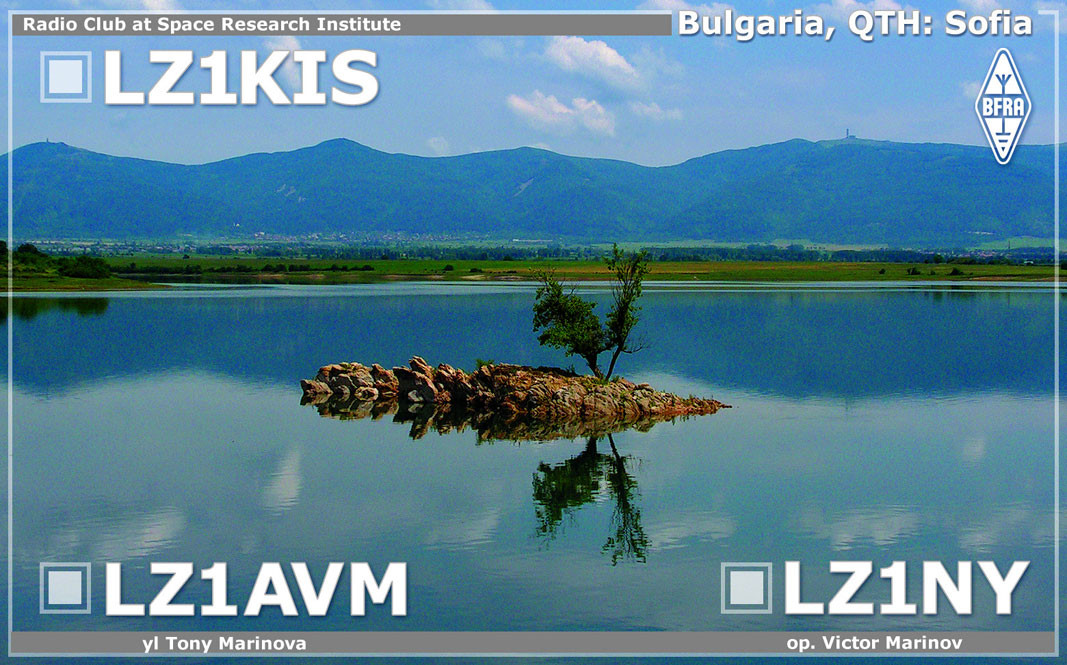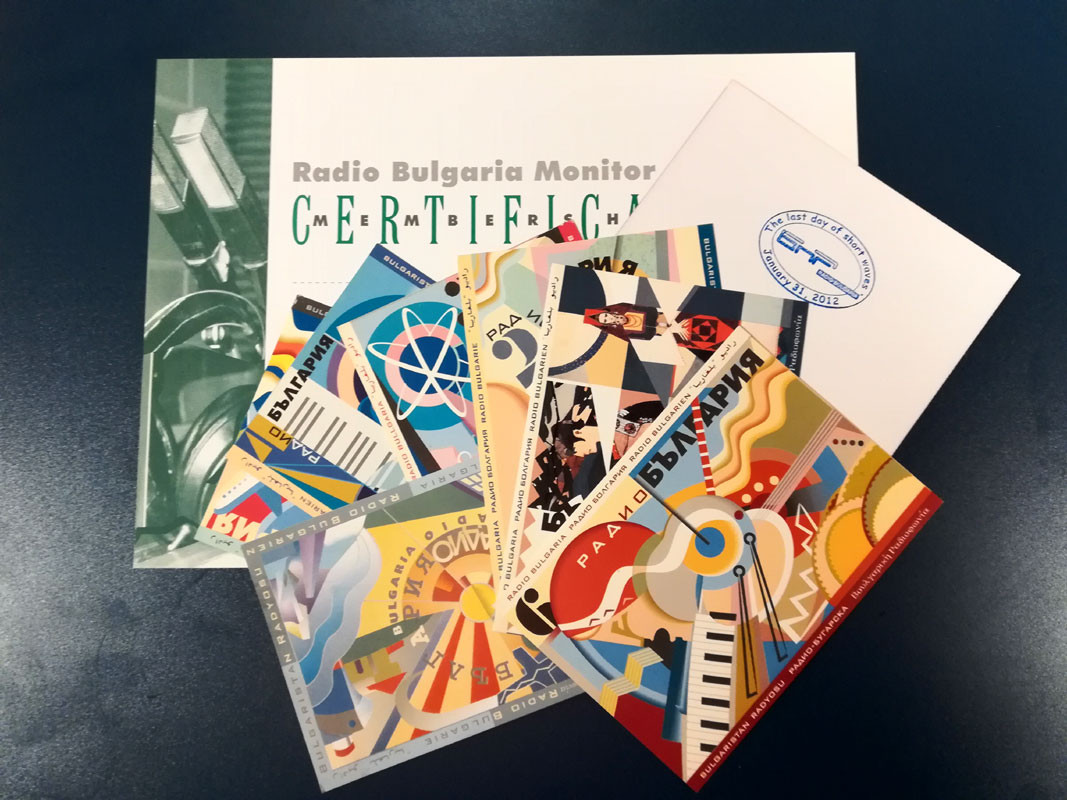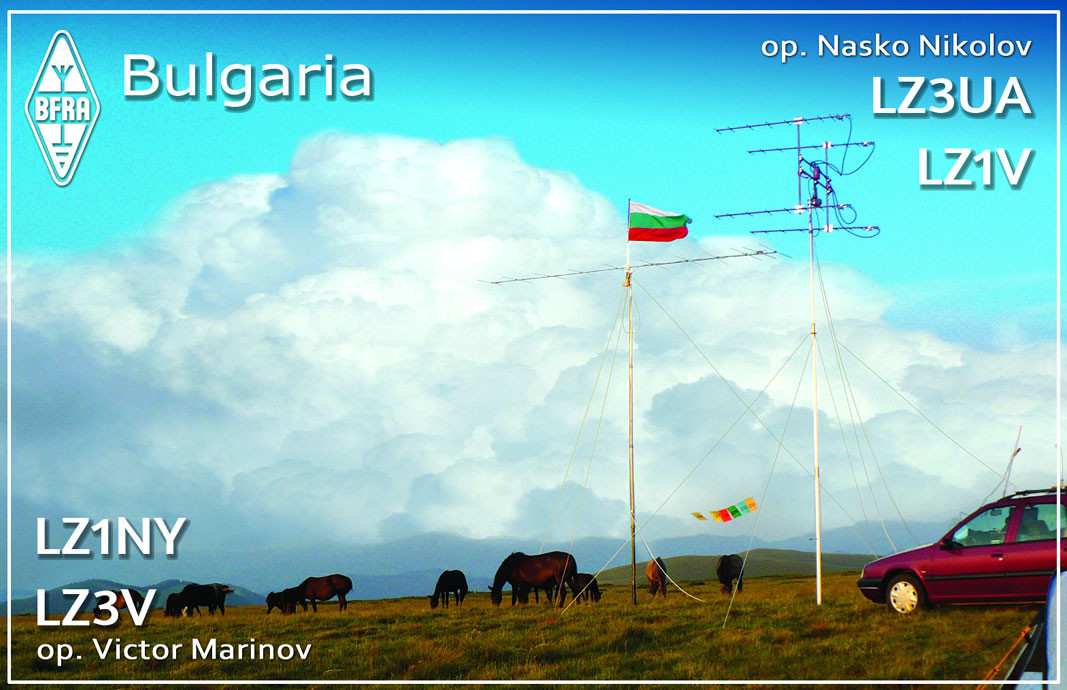On 24 November 90 years ago a group of engineers, amateur radio operators carried out the first contact, and one day later the first radio transmission in Bulgaria. To date, the Communications Regulation Commission has registered over 6,000 individual ham radio operators, plus quite a few club stations. What they talk to each other about on the air is what connects them all as hobby – radio.
“We have an interest in keeping relations among DXers from all over the world positive,” says Victor Marinov, a DXer since 1977. “That is why when making contact it is not acceptable to use rude or offensive language, no conversations on political, ethnic, religious or racial issues are allowed. There is a so-called good conduct code which we observe and pass onto the next generations as a mode of conduct, sense of tolerance, of mutual assistance amongst us.”
DXers have their own ham radio stations and recognize one another by their unique call signs. Call signs consist of two parts – a prefix and a suffix and are divided following a territorial-administrative principle.
“For Bulgaria the prefix is LZ, followed by a number. An even number means that the radio station is registered in Northern Bulgaria, an odd number – in the Southern part of the country. Call signs starting with LZ0 are assigned to radio repeaters and amateur radio propagation beacons. After the number comes a 2 or 3 letter suffix. That is our name in the world amateur radio society. My own call sign is LZ1NY and it is unique,” Victor Marinov says.

Another interesting element in amateur radio are the QSL-cards – a document that confirms the radio connection.
“The QSL-cards have a date, time, radio frequency or band used and other details,” Victor Marinov says. “Each DXer chooses the design of the QSL-card himself, what it should include because it is proof of contact made, but also a memento.”
Victor Marinov says that it is not always the most distant contact that is the most exciting. He has had contacts with people on the other side of the globe – New Zealand and Australia, but he was much more excited to establish contact last month with a Bulgarian expedition in Kiribati in the Pacific.
“I don’t know who the next exciting contact will be with – it is somewhere in the future. Sometimes the contact is with someone interesting who can lend meaning to your whole evening. DXers are all kinds of people by profession – actors, politicians, quite a few scientists of world renown, and it is interesting to make contact with any one of them. It makes no difference who you are – worker, doctor, engineer or the King of Jordan, as ham operators we are all equal.”

Is ham radio disappearing with the advent of new technologies?
“Ham radio is based on digital, communications and information technologies. With their explosive development ham radio is far from disappearing, it is constantly being enriched. Many of the new technologies and methods are tested by DXers, and many have turned their hobby into a profession. For me it is more than an ordinary hobby, it is a way of life and has shaped by development.”

There is another side to ham radio, the best side of all – 73:
“It is ham radio code for “All the best”. It came into being at a time when radio communication was mostly Morse code and to transmit whole sentences took a long time. So, codes and abbreviations were introduced. 73 – All the best – is usually used at the end of the radio communication.”
The Bulgarian National Radio hosted the annual Public Broadcasters International (PBI) Conference for the first time. Heads and representatives of public radio and television stations from 24 countries participated, including UK, France, Spain, the USA,..
Long-distance sailing captain Svetlozar Tenev has set off from the port city of Varna on Bulgaria's northern Black Sea coast on a circumnavigation of the world . His route will begin in Las Palmas (Canary Islands , Spain), where the man will..
A meeting titled “Mission Water” is taking place today at Burgas State University “Prof. Dr Assen Zlatarov”. The event gathers researchers involved in the European Union’s Mission “Restore Our Ocean and Waters” under the European Commission,..
Nearly two centuries ago, in the distant 1838, the Bessarabian Archbishop Dmitry Kishinev and Khotinsky consecrated the magnificent Orthodox church "The..
Bringing youthful energy, colour and cheer to the Bulgarian National Radio studio, students from the Bulgarian Sunday School Dr Petar Beron arrived..
At the outset of the war between Russia and Ukraine, the Bessarabian Bulgarians across all lands marked their national day with prayers for peace. Nearly..

+359 2 9336 661
